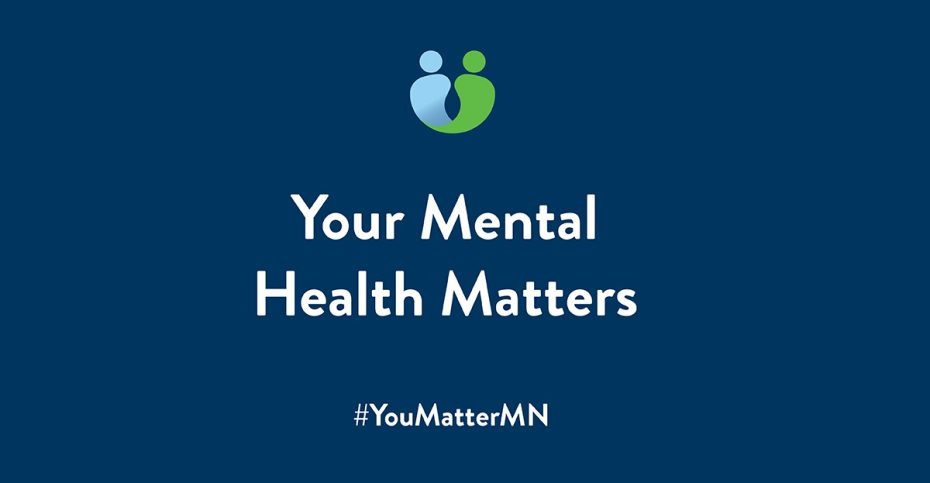Mental health is a topic that has long been shrouded in stigma, leaving many people feeling ashamed or reluctant to speak about their struggles. However, with increasing awareness and open conversations, the narrative is starting to shift. The importance of mental health awareness cannot be overstated, as it plays a crucial role in breaking down barriers, promoting understanding, and ensuring that individuals receive the help and support they need.
In this article, we explore why mental health awareness is so important, the challenges that individuals face, and how we can all contribute to fostering a supportive and stigma-free society.
The Current State of Mental Health Stigma
Despite progress in recent years, stigma around mental health remains prevalent in many societies. People with mental health challenges often face judgment, discrimination, and isolation, which can prevent them from seeking the support they need. In some cases, the fear of being labeled or misunderstood can lead individuals to suffer in silence, exacerbating their mental health issues.
The stigma around mental health is particularly damaging because it perpetuates harmful stereotypes and misconceptions. Many people still associate mental health issues with weakness, lack of willpower, or personal failure. This can lead to feelings of shame and self-blame, making it even more difficult for individuals to seek help.
Additionally, the lack of open discussion about mental health can result in misinformation. Myths about mental illnesses, such as the idea that they are not as serious as physical health conditions, or that therapy doesn’t work, contribute to the ongoing stigma. You can read more about how stigma affects mental health on Mental Health America.
The Importance of Mental Health Awareness
Raising awareness about mental health is a vital step in breaking down these barriers and encouraging a more compassionate, supportive society. Here’s why mental health awareness is so important:
1. Encourages Open Conversations
One of the most significant benefits of mental health awareness is that it encourages open dialogue. By speaking out about mental health, individuals can feel more comfortable discussing their own experiences, knowing they won’t be judged or ostracized. This can lead to early intervention and support, which can dramatically improve the outcome of mental health conditions.
In workplaces, schools, and communities, creating a space for honest conversations about mental health can help reduce misunderstandings and promote empathy. Support systems can only be built when people are willing to engage in these crucial conversations. For more tips on creating open mental health conversations in the workplace, visit Harvard Business Review.
2. Reduces the Fear of Seeking Help
The stigma surrounding mental health often leads individuals to avoid seeking help, even when they desperately need it. Mental health awareness helps to reduce this fear by showing that it’s okay to reach out for support. Whether it’s through therapy, counseling, or simply talking to a friend or family member, seeking help should be viewed as a sign of strength, not weakness.
When people feel supported in their decision to seek help, they are more likely to take the first step toward recovery. Education and awareness initiatives can help individuals understand that mental health challenges are common and that treatment is both accessible and effective. You can find more information about accessible mental health resources at NAMI.
3. Promotes Early Intervention and Prevention
Early intervention is key to successfully managing mental health conditions. Awareness campaigns can provide information on the early warning signs of mental health issues, encouraging people to recognize symptoms before they escalate. For example, recognizing the signs of depression, anxiety, or PTSD can allow individuals to take action early, whether it’s through self-care, professional help, or both.
Furthermore, mental health awareness can help reduce the risk of developing more severe mental health conditions. By learning about coping strategies, stress management techniques, and emotional regulation, individuals can better manage their mental well-being before problems become overwhelming.
4. Creates More Supportive Communities
Mental health awareness fosters more understanding and compassion in society. By learning about the different types of mental health conditions and how they affect individuals, people can become more empathetic toward those who are struggling. This leads to stronger, more supportive communities, where individuals feel safe to seek help and be themselves without fear of judgment.
In workplaces and educational institutions, a supportive environment where mental health is prioritized can improve overall productivity, satisfaction, and success. Organizations that recognize the importance of mental well-being are more likely to invest in resources like mental health days, counseling services, and wellness programs. Learn more about mental health in the workplace from Psychology Today.
5. Helps to Dismantle Myths and Misconceptions
Awareness efforts also play a crucial role in debunking myths about mental health. For example, the misconception that people with mental health issues are dangerous or untrustworthy is simply not true. In reality, individuals with mental health challenges are often more likely to be the victims of violence or discrimination, rather than the perpetrators.
By providing factual information and real-life stories, mental health awareness campaigns can challenge stereotypes and build a more accurate understanding of mental illness. This can ultimately lead to more acceptance, as people begin to recognize that mental health conditions are medical issues, not character flaws.
How We Can All Contribute to Mental Health Awareness
While large-scale campaigns and initiatives play a vital role in raising awareness, individual actions are equally important in creating a culture of understanding and acceptance. Here are a few ways we can all contribute:
1. Educate Yourself and Others
The first step toward reducing stigma is educating ourselves about mental health. Read books, watch documentaries, and follow credible sources online to learn more about mental health issues. When you have accurate knowledge, you can share it with others, helping to challenge misconceptions and promote understanding.
2. Be Compassionate and Non-Judgmental
When someone opens up to you about their mental health, it’s essential to listen with empathy and without judgment. A compassionate response can go a long way in making someone feel supported and validated. You can encourage them to seek help if needed, but it’s important to respect their feelings and decisions.
3. Support Mental Health Initiatives
Consider supporting local or national mental health organizations that are working to raise awareness and provide resources. Donating your time, money, or skills to these organizations can help fund research, outreach programs, and advocacy efforts. One great example is the National Alliance on Mental Illness, which works to raise awareness and provide vital resources.
4. Practice Self-Care and Encourage Others to Do the Same
Taking care of your own mental health is crucial in reducing stigma and encouraging others to prioritize their well-being. Practice self-care, talk openly about your own mental health, and encourage others to do the same. The more we normalize mental health conversations, the easier it will be for others to seek help when they need it.
Conclusion: The Path Toward a Stigma-Free Future
The stigma surrounding mental health is one of the biggest barriers to seeking help and achieving well-being. However, through increased awareness, education, and compassion, we can break down these barriers and create a world where mental health is treated with the same importance as physical health. The more we talk openly about mental health, the more we can reduce fear, shame, and misunderstanding.
By prioritizing mental health awareness and supporting each other, we can contribute to a future where everyone feels safe, understood, and empowered to take care of their mental well-being.
















